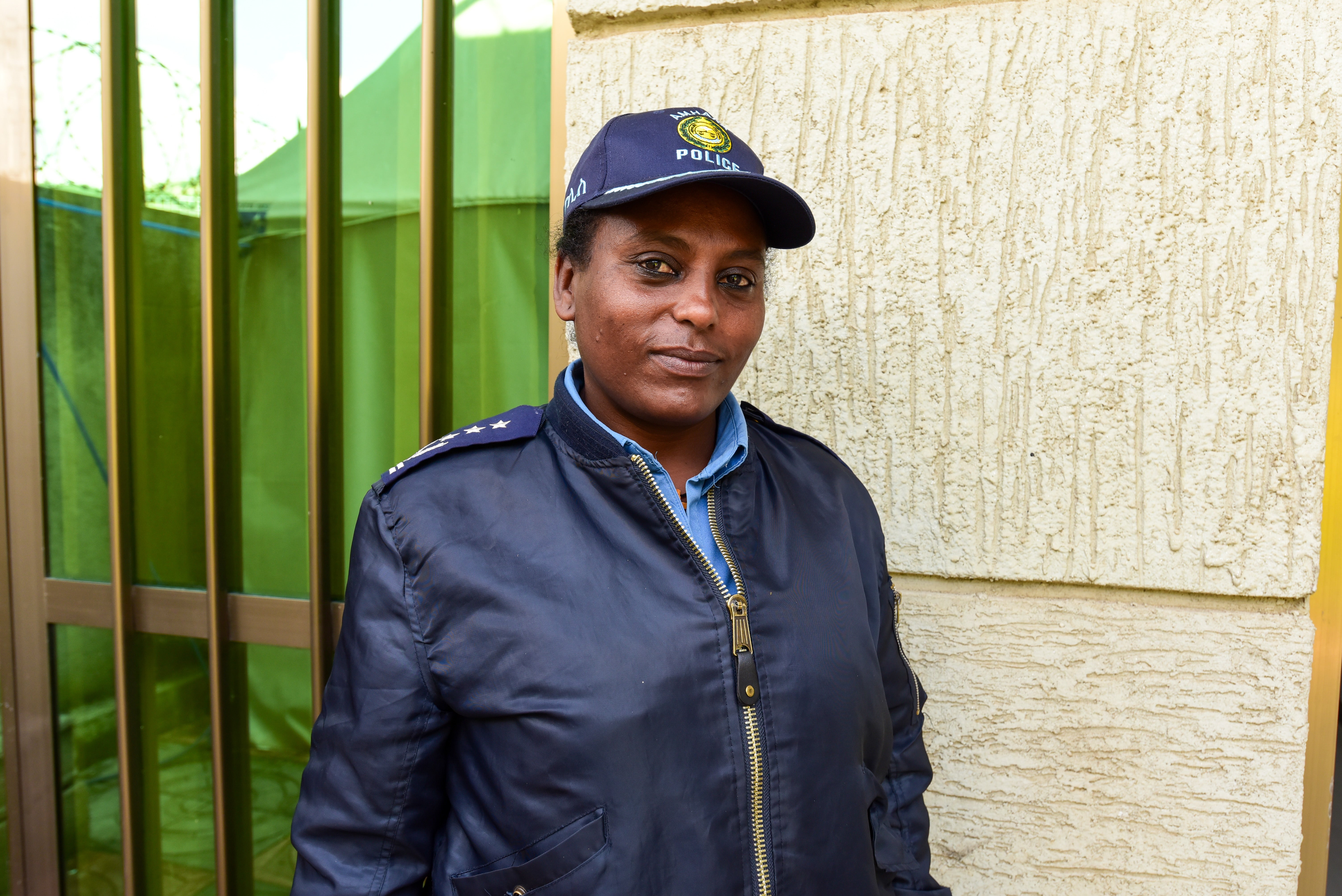From Where I Stand: “GBV cases are increasing, given the conflict and instability in the city and its surroundings.”
Date:
Commander Almaz Lakew has been Head of Women and Children’s section at Gonder City Police Department in Amhara region, for the past 4 years. She has been in police force for 15 years. The department she leads comprises of mostly female detectives and officers who are the first entry points in GBV cases reported to the police. Given the increase in cases due to conflict and instability in the region, her team is instrumental in serving as a linkage towards rehabilitation of survivors including Conflict Related Sexual Violence (CRSV) cases.

“We work with Good Samaritan Association (GSA) on supporting GBV survivors, CRSV survivors, victims of trafficking and migrant returnees who are also sexually abused.
The city is close to the border with Sudan, mostly used by human traffickers for illegal migration. Many women and girls come from Southern Ethiopia and Oromia regions as well as other parts of the country by human traffickers. We work to stop the illegal trafficking and support them go back to their families.
GSA is instrumental in our work especially when it comes to GBV survivors, including women and girls who were trafficked and sexually abused. We do not have a place to keep them while they stay to get the much-needed support until they are re-united with their families. We do not provide food and other much needed supports. Hence, we refer them to GSA’s shelter where they get support in shelter, food, counseling, and accessing health services.
As the police, we are the first entry point for GBV survivors. We do not have resources to respond to their needs for food and non-food in kind items. We sometimes use our own money to do that. Even for health care, we used to cover that among ourselves until recently. Now there is one stop center that provides health care for survivors for free.
We find human trafficking victims crowded in small rooms in unhygienic conditions. We still struggle to accommodate their needs. Witnessing survivors access justice and resolve their legal cases gives me great satisfaction, to see them alive and hopeful of their future again. I focus on that when I work on cases that sometimes are heart breaking and traumatizing to hear about.
What makes me sad is the justice situation for survivors. Sometimes the sentencing isn’t giving justice for survivors but favors perpetrators. I don’t think it is lack of awareness but considering lives of survivors ‘worthy enough.’
In my opinion, GBV cases are increasing. Given the conflict and instability in the city and its surrounding. Vulnerable women and girls are facing the dangers due to the situation.
We have female police officers dedicated to handle GBV cases. There are various awareness raising activities by stakeholders on GBV against women and girls.
One stop center has helped us in getting evidence for rape cases in better ways. We used to have challenges in getting the right medical evidence for court cases, which resulted in many cases being dropped previously. Now the center has all services dedicated to survivors and addressed these challenges.”
UN Women partnered with Good Samaritan Association for the implementation of a project entitled “Provision of Comprehensive Rehabilitation Services for Survivors of GBV Among Internally Displaced People in Amhara Region” in March 2022. The project focuses on rehabilitation of internally displaced women and girls survivors of violence who are affected by the conflict, migrant returnees and victims of trafficking through enhancing access to holistic rehabilitation and reintegration services.
A total of 245 women and girls benefited from the services including psycho-social support, temporary shelter, training opportunities and creating linkage with credit associations and reintegration. The project also supported institutional strengthening and capacity development of national and local institutions to respond to violence against women and girls through provision of capacity building trainings to service providers.
The content illustrates contribution to the following SDGs:
